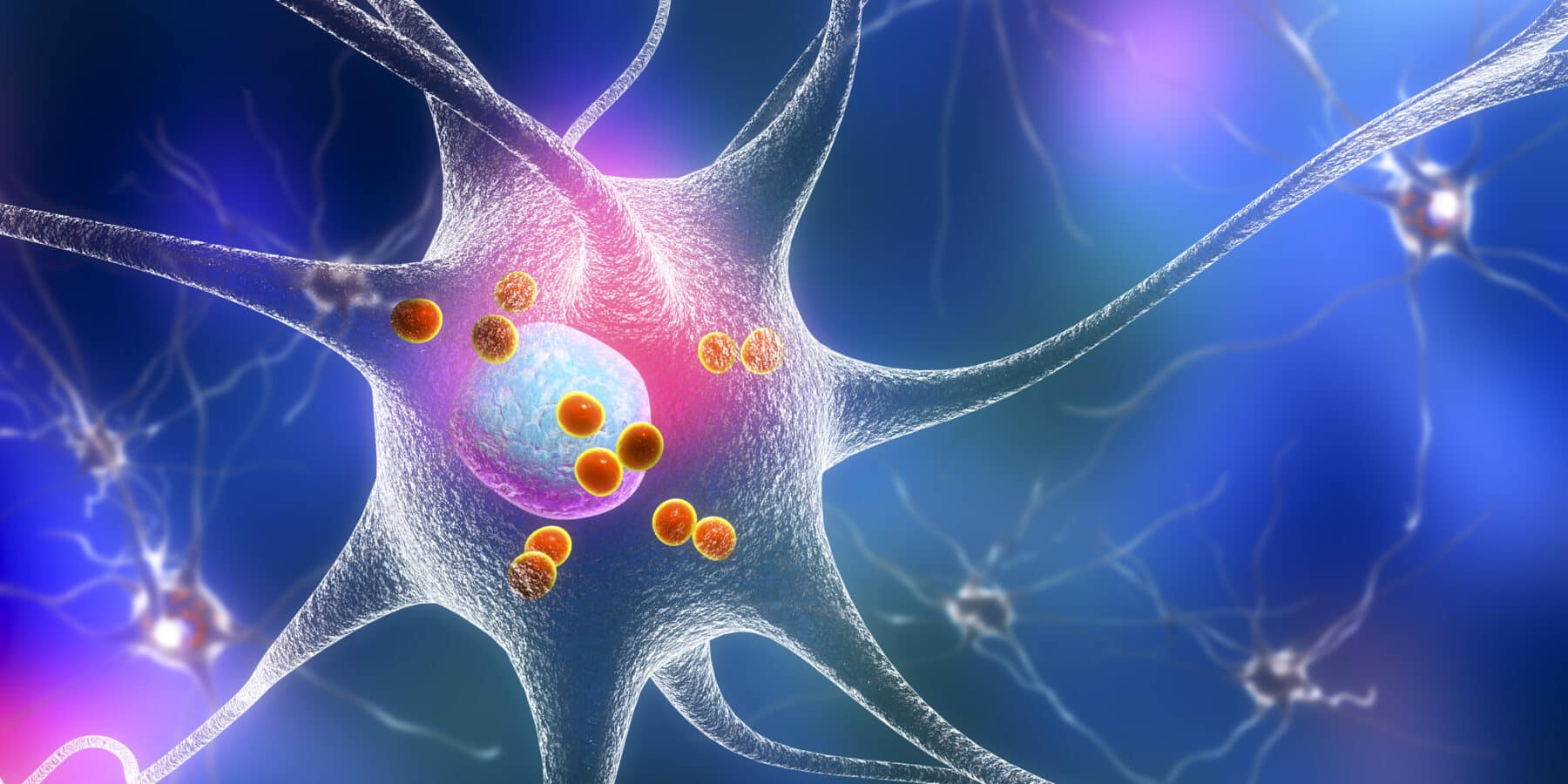This preclinical study is assessing whether rifabutin, an antibiotic, can protect nerve cells (neurons) by reducing levels of alpha-synuclein.
About the study
Dr Lorraine Kalia at University Health Network, Toronto is investigating the antibiotic rifabutin as a potentially disease-modifying drug in laboratory models of Parkinson’s. Rifabutin was prioritised by the iLCT committee in 2022. A previous screening study by Dr Kalia’s lab identified rifabutin as a potential disease-modifying therapy for Parkinson’s, with evidence that it could reduce levels of the protein alpha-synuclein [1]. Build-ups of dysfunctional copies of alpha-synuclein are common in the neurons of people with Parkinson’s, and are considered a hallmark and driver of progression. Therefore, if rifabutin can help break alpha-synuclein down, it could help protect neurons.
The primary objective of this study is to replicate the results of the screening study as well as gain a better understanding of how rifabutin achieves this. Specifically, they are interested in (1) evaluating the effectiveness of rifabutin in alpha-synuclein models of Parkinson’s, (2) exploring rifabutin’s mechanism of action, and (3) developing a biomarker to better measure treatment response in future clinical trials. A drug’s mechanism of action refers to what the drug interacts with in the cell to achieve its intended effect. Biomarkers are aspects of the body that can be measured to give us information on disease progression and risk. Dr Kalia’s team hope to use this data to support moving rifabutin into an initial phase 1 or 2 clinical trial for Parkinson’s.
Trial overview
- Researcher: Dr Lorraine Kalia
- Institution: University Health Network, Toronto
- Project Type: Preclinical
- Status: Ongoing
- Start Date: Oct 2022
- iLCT-evaluated (2022)
- Therapy Target: Alpha-synuclein accumulation
More about the study
What is rifabutin?
Rifabutin is an antibiotic used to treat tuberculosis and other mycanobacterium-born illnesses. Evidence suggests, however, that it may also be able to reduce levels of alpha-synuclein, potentially helping to slow progression of Parkinson’s.
Rifabutin is thought to achieve this by increasing production of a special type of the heat shock protein: HSP70. Heat shock proteins (HSP) help stabilise cells under periods of stress as well as assist with normal cell functioning. Specifically, HSP70 is involved in building other proteins and breaking down dysfunctional ones. Given that alpha-synuclein often misfolds and accumulates in the neurons of people with Parkinson’s, researchers are interested in whether increasing activity of HSP70 through the administration of rifabutin could protect cells against this build-up.


